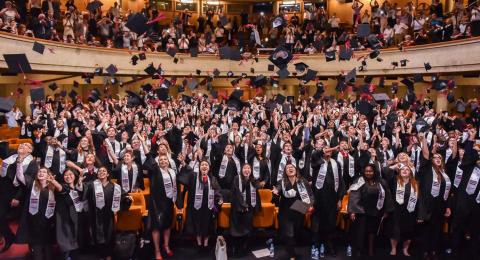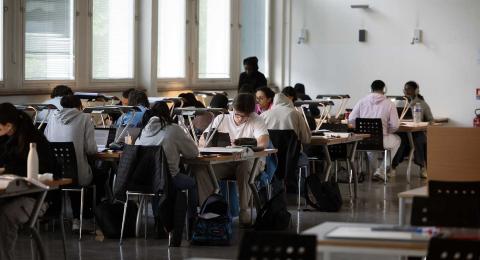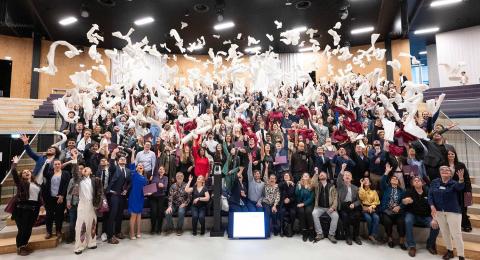Human Movement & Sport Sciences : Training and Optimization of Sports Performance (TOSP)
In the context of modern sport, athlete training and approaches to optimize performance are constantly evolving, requiring in-depth knowledge of human movement science to achieve optimal efficiency. The EOPS Master's degree trains human movement scientists able to handle complex situations specific to sports field with the goal to optimize training and preserve the health of athletes.
From September to March in Master 1 and from September to January in Master 2, students follow courses in the form of lectures, tutorials and practical work at the Evry university, Orsay university and Racing Club 92 (Plessis-Robinson). Following this teaching period, students complete an internship in a research laboratory, a sports or hospital structure. The subject of the internship is expected to be related to the Master's courses, typically training, performance optimization or athlete health. During this internship, students are individually monitored by a researcher, possibly accompanied by a professional from the socio-economic world (depending on the internship location). The duration of the internship is around 200 hours in Master 1 and 300 hours in Master 2. The internship gives rise to a report written according to the scientific standards and defended in front of a jury composed of researchers and professionals.
Information
Master’s Year 1
Master’s Year 2
Skills
•Evaluate the performance of sedentary people, recreational and elite athletes using field and laboratory testing with the appropriate material and methods used in human movement science.
•Optimize athlete performance and implement training methods with advanced multidisciplinary knowledge in human movement science.
•Adapt and personalize training to preserve athlete health and well being.
•Carry out original research projects in sport science based on scientific literature review.
•Communicate research results to the scientific community and sports federations.
Learning outcome targets
The general objective of the mention is to bridge the gap between research in human movement science and sport practice. The philosophy of the master’s degree is based on the current conception common to human movement science and modern sport that human performance is multifactorial and involves multiscale/interrelated levels of adaptations, ranging from the molecular to the behavioral level. Based on this philosophy, the master’s degree aims to facilitate the acquisition of basic multidisciplinary knowledge and scientific skills in the fields of Physiology, Biomechanics, Psychology, Neuroscience, Nutrition and Sociology in order to rationalize and improve practices in training, as well as to optimize sports performance. The ultimate objective being the application to the sport field and the promotion of athletes’ health and well-being with ramifications into research and development in human movement and sport sciences. Learning advanced technological tools used in these different scientific fields (e.g. fast camera, force platform, EMG, EEG, connected objects, portable gas analysis, etc.) as well as the analyzes associated with the use of these tools (e.g. signals processing, quantitative / qualitative statistics, machine learning etc.) and their interpretation contribute to this approach. The master gathers highly renowned scholars, health and sport professionals working closely together in an exceptional academic and sport environment providing students with an original and relevant approach that puts human movement science into practice and vice versa.
Target audience
- Bachelor's degree in human movement sciences (Sport and Exercise Science, STAPS, Kinesiology etc.) or equivalent
- Health professionals (e.g. MD, physiotherapists, osteopaths, etc.)







